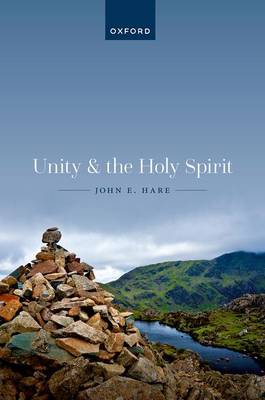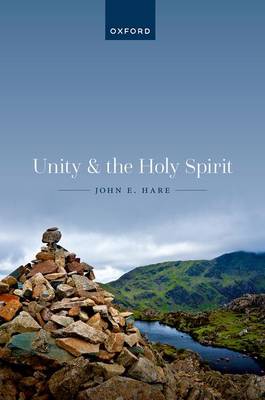
- Retrait gratuit dans votre magasin Club
- 7.000.000 titres dans notre catalogue
- Payer en toute sécurité
- Toujours un magasin près de chez vous
- Retrait gratuit dans votre magasin Club
- 7.000.0000 titres dans notre catalogue
- Payer en toute sécurité
- Toujours un magasin près de chez vous
Description
Unity and the Holy Spirit investigates the work of the Holy Spirit in the world (as distinct from the church). John E. Hare proposes that the Spirit aims at unity of four different kinds: unity between us and the material world, unity within us, unity between us and others, and unity between us and God. The book proceeds by discussing one example of each of these kinds of unity. The example of the first is our experience of the beautiful and the sublime, examining Kant's account of these experiences with two pieces by Beethoven used as illustrations. The example of the second is gender transition, taking as a case a life assigned female at birth. Patriotism provides the third example, and the discussion examines the relation of a limited patriotism to the ideal of cosmopolitanism. The fourth example is contemplation; the discussion looks at different conceptions of this practice, starting with Aristotle. The final chapter collects together these examples, and asks what unity is in itself, starting again with Aristotle. In each case, emphasis is placed on what is contributed to our understanding by invoking the work of the Holy Spirit. The book ends by asking why the Spirit aims at unity, and the answer is that the Spirit loves. This book completes a trilogy of works on ethical theory and the doctrine of the Trinity, following The Moral Gap (OUP, 1996), about the work of the Second Person, and God's Command (OUP, 2015), about the work of the First.
Spécifications
Parties prenantes
- Auteur(s) :
- Editeur:
Contenu
- Nombre de pages :
- 256
- Langue:
- Anglais
Caractéristiques
- EAN:
- 9780192890849
- Date de parution :
- 05-04-23
- Format:
- Livre relié
- Format numérique:
- Genaaid
- Dimensions :
- 165 mm x 224 mm
- Poids :
- 544 g

Les avis
Nous publions uniquement les avis qui respectent les conditions requises. Consultez nos conditions pour les avis.






